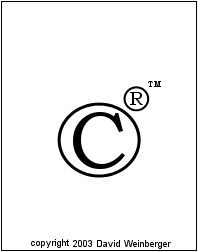The US Government's Office of Foreign Assets Control has told the IEEE, publishers of engineering journals that it cannot edit contributions from persons in Cuba, Iran, Libya, or Sudan. This is very hard to understand as anything but a First Amendment violation. Unfortunately, I can't find the primary sources online, and the secondary sources are not as clear as I'd like.
IEEE Web Only News:
On 30 September, the U.S. Treasury Department (Washington, D.C.) informed the Institute of Electrical and Electronics Engineers (IEEE) that it must continue to limit members’ rights in four countries embargoed by the United States: Cuba, Iran, Libya, and Sudan. The ruling means, among other things, that the IEEE, the world’s largest engineering association (and the publisher of this magazine), cannot edit articles submitted by authors in those countries, making it effectively impossible for most such work to appear in IEEE publications.
If IEEE wishes to edit and publish the work, the Treasury Department informed IEEE, it will need to apply for a special license. That ruling could in turn have far-reaching consequences for hundreds of other U.S.-based scholarly publishers and professional organizations.
In the meantime, however, IEEE members in the four affected countries are prohibited from being elevated to a higher-grade membership; using IEEE e-mail alias and Web accounts; accessing online job listings; and conducting conferences under the IEEE name [see “Services in Dispute,” p. 15]. They still receive printed journals and other publications. In January 2002, when the IEEE first imposed its restrictions, it had over 1700 members in the embargoed countries, nearly all of them in Iran; only about 200 are still members. IEEE has about 380 000 members worldwide.
…
We’ve been working with OFAC to better understand what services we can still provide,” Adler says. “But [OFAC] drew the line very explicitly on editing.” In his letter to IEEE, OFAC director R. Richard Newcomb stated that “U.S. persons may not provide the Iranian author substantive or artistic alterations or enhancement of the manuscript, and IEEE may not facilitate the provision of such alterations or enhancements.” Such enhancements include “reordering of paragraphs or sentences, correction of syntax or grammar, and replacement of inappropriate words.”
Foreign asset controls are designed in part to stop money and services from going to 'bad' regimes. The statutes and regulations I am familar with all contain exemptions for “publications”. From what I can see, the government argues that editing is some sort of prohibited service (or technology export? If so that would open a nice can of worms — a perfect topic for a student's law review note…). Whatever they may call it, I have a lot of trouble imagining a regime that requires journals to get a license to allow them to edit foreigners' submissions as anything other than a classic prior restraint on speech.
Continue reading →


 If there were to be a
If there were to be a